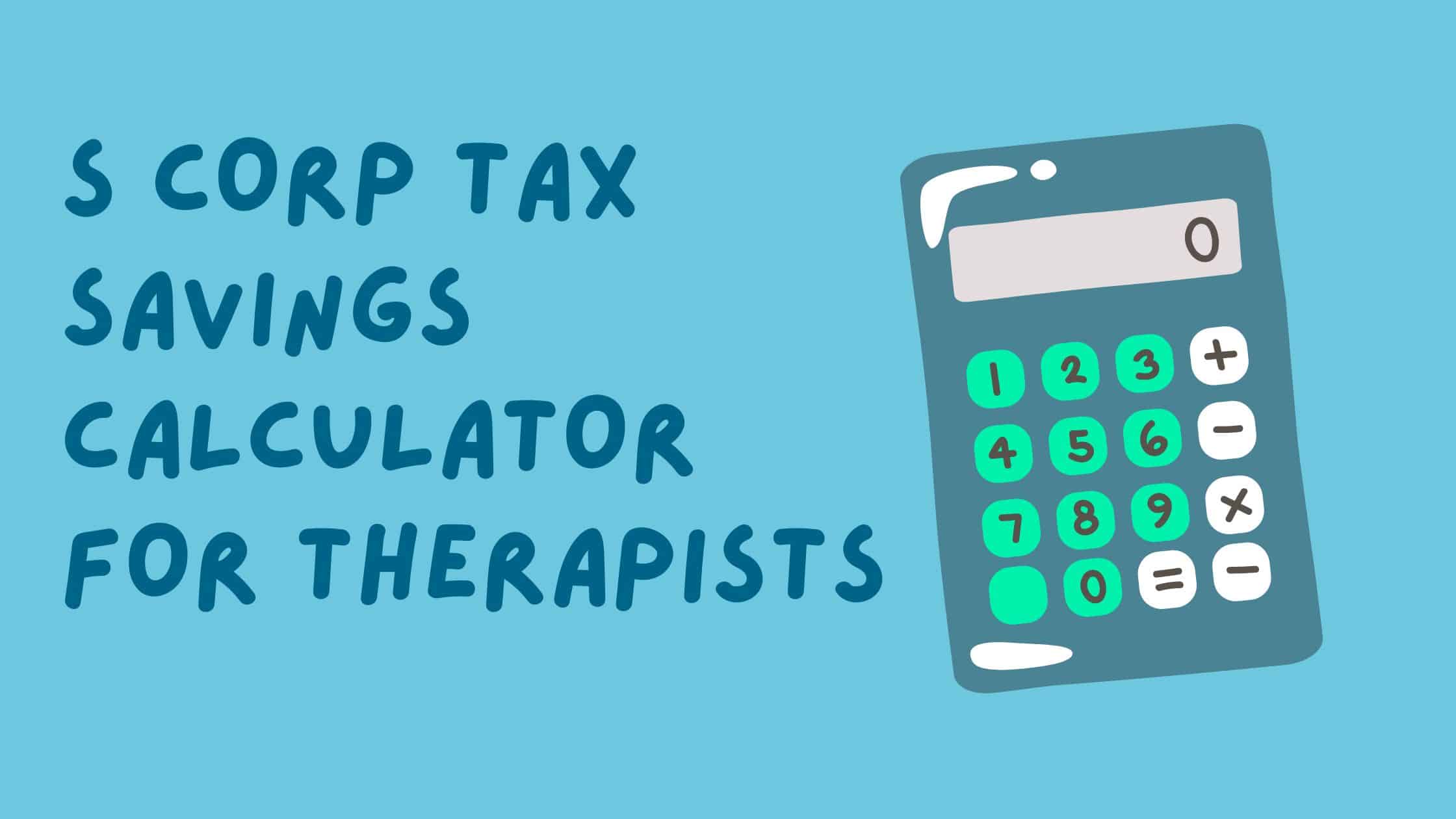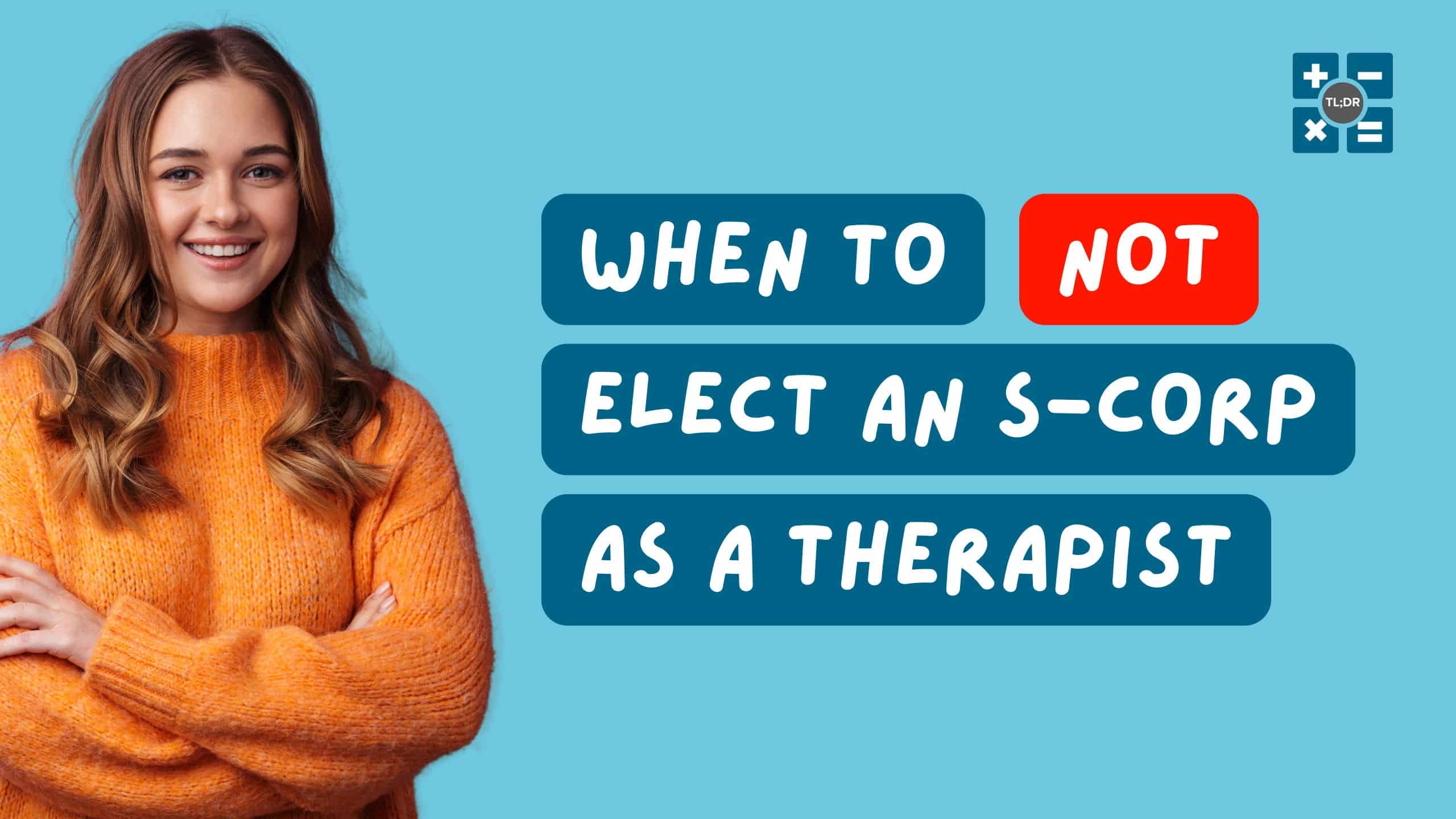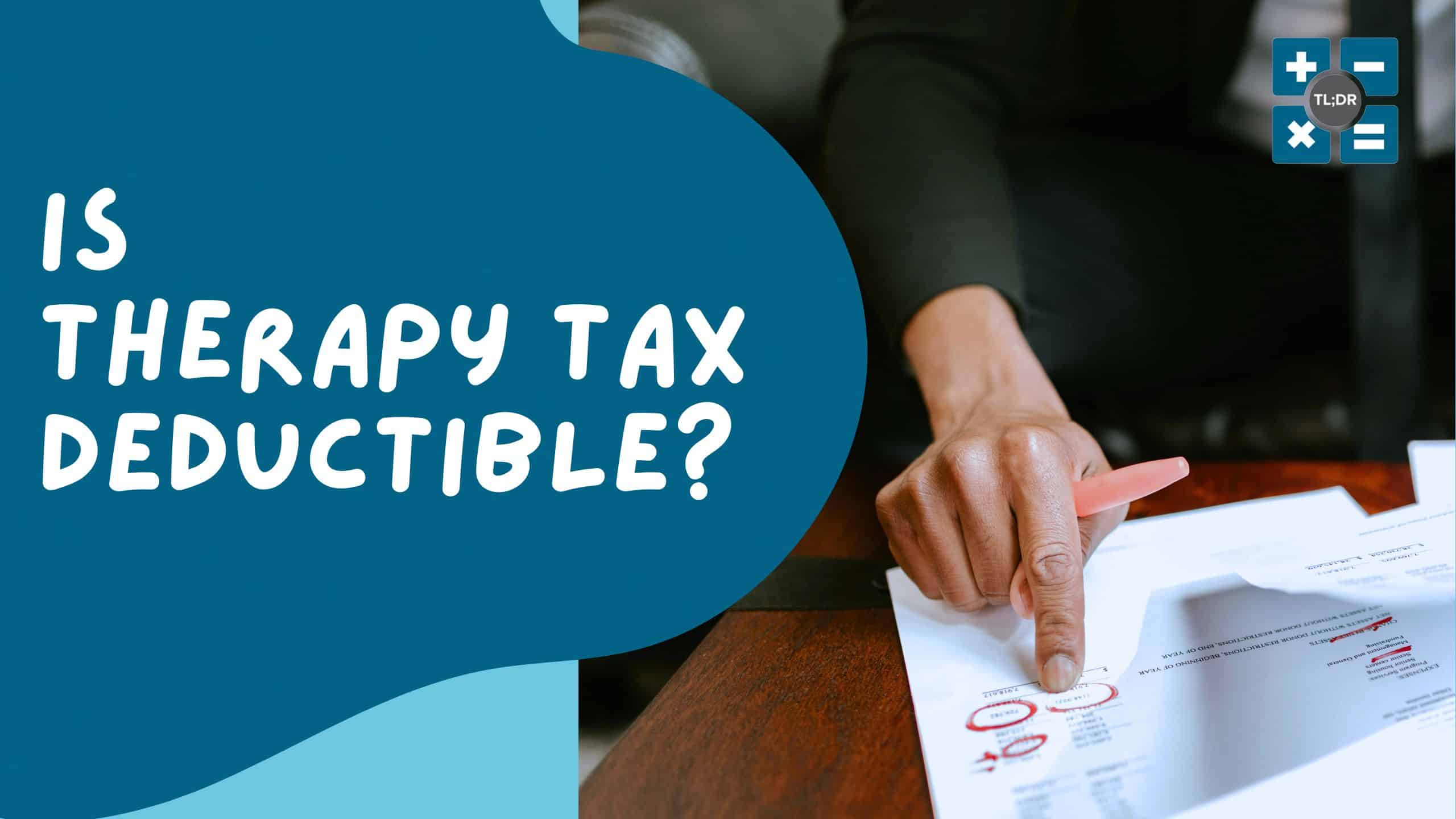Planning to start an S-Corp? Maybe you’ve heard that being an S-Corp is a great way to save taxes for your therapy practice.
But is it the right fit for your needs? Are the tax savings worth the extra paperwork? Below, we provide an S-Corp tax savings calculator for therapists that you can use to estimate your tax savings.
We’ll also break down the tax calculations for a sole proprietor and an S-Corp so you can see the difference and decide if it’s worth it.
For our calculations, let’s assume the following information:
- Gross business income is $200,000
- Business expenses are $50,000
- Reasonable salary is $80,000
Your Tax as a Sole Proprietor
A sole proprietor pays 15.3% self-employment taxes and federal income. The federal income tax ranges from 10% to 37% based on the taxable income range. Let’s compute your therapy practice’s tax if it’s a sole proprietor:
| Gross business income | $200,000 |
| Less: Business expenses | $50,000 |
| Net business income | $150,000 |
| Multiply: Self-employment tax rate | 15.3% |
| Self-employment tax | $22,950 |
The $150,000 was subjected to a 15.3% self-employment tax if your therapy practice is a sole proprietor. However, things don’t end there because we still need to compute the federal income tax using the net business income as the basis.
Federal Income Tax Calculation
We need to refer to the 2024 Federal Income Tax brackets when computing this tax. Since our net business income is $150,000, this income rate fits in the fourth bracket with a rate of 24%. The federal income tax in the fourth bracket is computed as follows:
| Taxes owed | $17,168.50 | |
| Net business income | $150,000 | |
| LESS: Lower threshold of the fourth bracket | $100,525 | |
| Income in excess of $100,525 | $49,475 | |
| MULTIPLY by fourth bracket tax rate | 24% | $11,874 |
| Federal income tax | $29,042.50 | |
| Self-employment tax | $22,950.00 | |
| TOTAL TAX OBLIGATIONS | $51,992.50 |
If you’re a sole proprietor, your total tax obligations for a net business income of $150,000.
Your Tax as an S-Corp
Now, let’s try computing the total tax obligations for an S-Corp by using the same information above. For sole proprietor, we subjected the whole $150,000 to self-employment tax of 15.3%. However, with S-Corps, we only use a reasonable salary for self-employment taxes.
| Reasonable salary | $80,000 |
| Multiply: Self-employment tax rate | 15.3% |
| Self-employment tax | $12,240 |
Since we have a reasonable salary of $80,000 for S-Corps, we can deduct this from net business income before computing federal income tax.
| Net business income | $150,000 |
| Reasonable salary | $80,000 |
| Remaining profit | $70,000 |
Since the remaining profit is $70,000, we’ll use this amount as the taxable income for federal income tax computation. In the 2024 Federal Income Tax table, our $70,000 taxable income is within the third bracket.
| Taxes owed | $5,426 | |
| Remaining profit | $70,000 | |
| LESS: Lower threshold of the fourth bracket | $47,150 | |
| Income in excess of $47,150 | $22,850 | |
| MULTIPLY by fourth bracket tax rate | 22% | $5,027 |
| Federal income tax | $10,453 | |
| Self-employment tax | $12,240 | |
| TOTAL TAX OBLIGATIONS | $22,693 |
If you elect the S-Corp designation, the total tax obligation that you’ll pay is $22,693, which already includes self-employment tax.
Comparing Sole Proprietor and S-Corp Tax
Below is a comparison of self-employment and federal income tax for both sole proprietor and S-Corp designations.
| Sole Proprietor | S-Corp | |
| Federal income tax | $29,042.50 | $10,453 |
| Self-employment tax | $22,950.00 | $12,240 |
| TOTAL | $51,992.50 | $22,693 |
In the computations above, the tax savings in S-Corp is $29,299.50, which is equivalent to 56% tax savings. Here’s a quick summary of what happened and why S-Corp taxes are lower:
- As a sole proprietor, the whole net income became subject to self-employment tax of 15.3% and federal income tax.
- For S-Corps, only a reasonable salary was subjected to the self-employment tax of 15.3%. Since there’s a reasonable salary, we deduct it from net income to compute taxable income for federal income tax.
- The taxable income for federal income tax for sole proprietors is $150,000 while $70,000 for S-Corps, resulting to a higher tax bracket for sole proprietors.
Hence, we can say that being designated as an S-Corp will really give you a lot of tax savings that you could reinvest in your therapy practice and improve your services.
Here’s The Catch With S-Corps
Yes, you’ll save thousands of dollars in taxes with S-Corps, but those tax savings come with strings attached. Here are some drawbacks of choosing the S-Corp designation:
- You have access to limited capital growth because S-Corps are limited only up to 100 shareholders that must be U.S. citizens or residents only.
- There are a lot for formalities in S-Corps such as filing the articles of incorporation, adopting a bylaws, holding board and shareholder meetings, and complying with state-specific laws.
- If you’re a shareholder-employee, you need to receive reasonable salary that will also be subjected to payroll tax.
- You need to file corporate tax returns and individual tax returns for shareholders.
Conclusion
Indeed, S-Corps enjoy more tax savings than sole proprietors or other business entity types that didn’t elect the S-Corp designation. This extra savings can be used for different purposes or reinvested in your therapy practice. If you’re interested in being an S-Corp but don’t want to deal with the complexities surrounding it, we at TLDR Accounting can help you. Contact us now, and let’s find the best tax designation for your private therapy practice.





